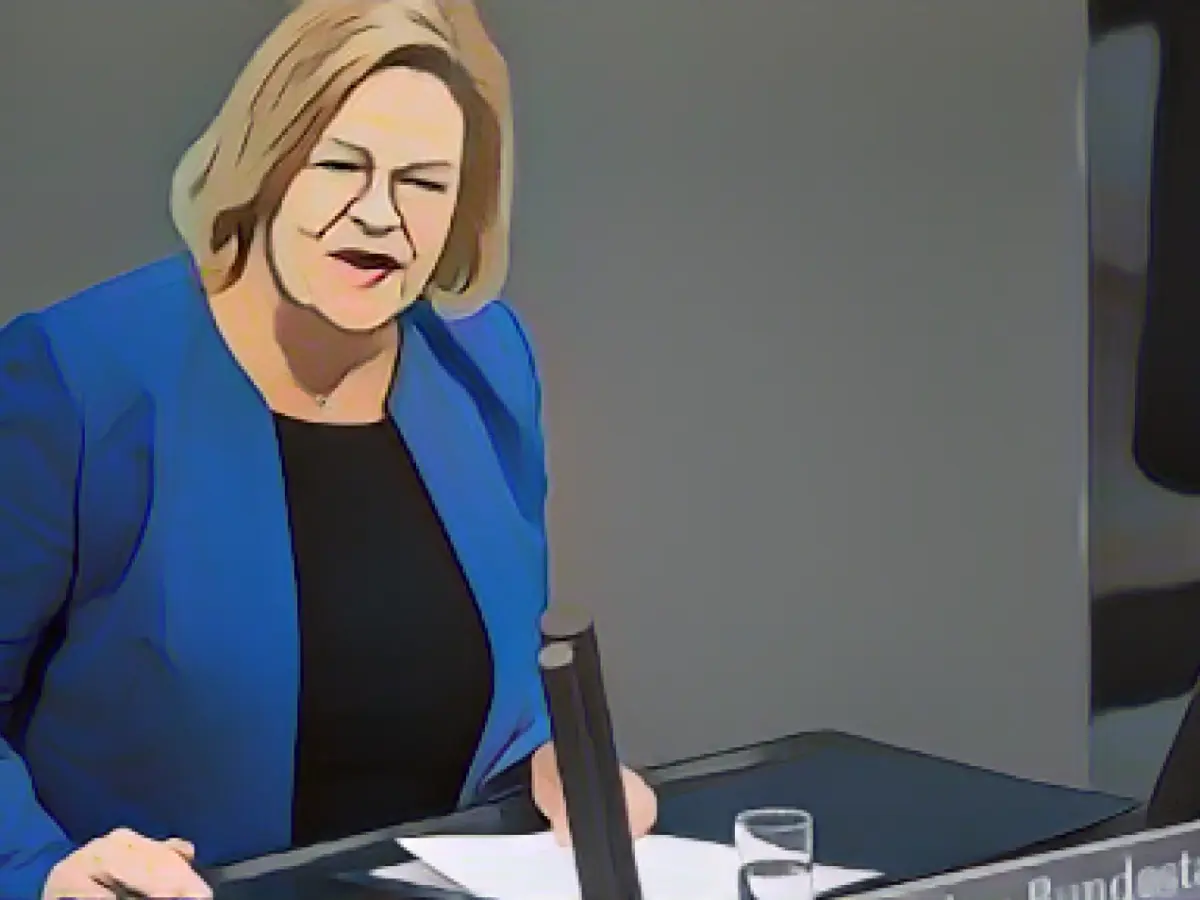In the midst of escalating tensions in the Middle East, German interior ministers have pledged unwavering resistance against uncontrolled pro-Palestinian demonstrations that might fuel hate speech and disparaging remarks against Israel and the Jewish community. Iris Spranger, Berlin's Senator of the Interior, vehemently expressed her stance during the conference, stressing that these infringements on free speech and assembly are not only intolerable but warrant immediate solution.
The gathering served as a symbol of unity and solidarity for Germany with the presence of Israeli Ambassador Ron Prosor and the President of the Central Council of Jews, Josef Schuster. It provided an opportunity for interior ministers to collaborate and devise constructive strategies to tackle the worsening global security situation with terrorism and the protection of German citizens as top priorities.
Currently, Germany faces a growing threat from Islamist terrorism, prompting Federal Minister Nancy Faeser (SPD) to urge heightened vigilance against such threats. The looming Christmas markets and the European Football Championship 2024 have shifted the focus of the police towards ensuring impeccable security arrangements for these events.
Defense minister, Boris Pistorius (SPD), is set to participate in the conference, underscoring the interconnectedness of internal and external security in the modern era. Bavaria's Interior Minister Joachim Herrmann (CSU) advocates for the continued implementation of border controls after the success of intercepting numerous criminal smugglers recently.
The Conference of Interior Ministers will delve into several pressing issues including combating the surge of violent crime, shifting the burden of proof in confiscating criminals' assets, and countering the proliferation of violent content targeted at children using artificial intelligence.
In the evolving domestic policy landscape, interior ministers will deliberate and refine collaborative strategies to safeguard German citizens, uphold democratic principles, and maintain peace and security both domestically and internationally.
The recent discussions and strategies aimed at ensuring security and countering intolerance, terrorism, and violent crime in Germany were focal points during the Conference of Interior Ministers and related meetings:
- Securing the Bundestag Elections:
- Foreign Interference: Federally, the Interior Minister Nancy Faeser has called for protection against foreign influence and disinformation during the upcoming Bundestag elections. She has urged social media platforms to act against the spread of misinformation and clearly label AI-generated content.[1]
- Disinformation Measures: Representatives from major social media platforms, non-governmental organizations, the Federal Returning Officer, and other federal ministries were involved in these discussions to devise measures against disinformation and foreign interference.
- Combating Terrorism and Extremism:
- Terrorism Threats: Germany has been proactive in addressing terrorism threats, especially those from Islamist extremism. The Federal Office for the Protection of the Constitution (BfV) has identified around 760 potential Islamist terrorists with more than half residing in Germany.
- Far-Right Extremism: There has been growing attention towards far-right extremism. German intelligence reported renewed momentum for the country's far-right elements in 2022, with police raiding 130 sites in 11 states and arresting 25 activists allegedly planning to destabilize the state.
- Legislative Measures:
- Anti-Terror Legislation: In response to various attacks, the German government has been strengthening legislation against foreigners accused of terror-related crimes with an aim to expedite deportations.
- Network Enforcement Law: German lawmakers authorized the Network Enforcement Law in 2017 to combat online hate speech and extremist content.[3]
- Security Measures and Counter-Terrorism Efforts:
- Counter-Terrorism Centers: Germany has bolstered its counter-terrorism abilities by establishing the Joint Counter-Terrorism Center in 2004 and the Joint Internet Center in 2007 to monitor Islamist terrorist networks online.
- Defense Expenditure: The German Chancellor has put forward the necessity of substantial defense expenditure enhancements to preserve European security, especially in response to the Russian threat. This includes funding and supporting key technologies for security and extending the European defense industry.[5]
- Public Demonstrations and Protests:
- Munich Security Conference Protests: Thousands gathered external of the Munich Security Conference, protesting against NATO, the arms industry, and the supply of additional weapons to Ukraine. Protests emphasized themes of increased democracy, diversity, and disarmament.[2]
These discussions and strategies indicate a holistic approach to securing Germany against intolerance, terrorism, and violent crime, while upholding democratic values and peace.








